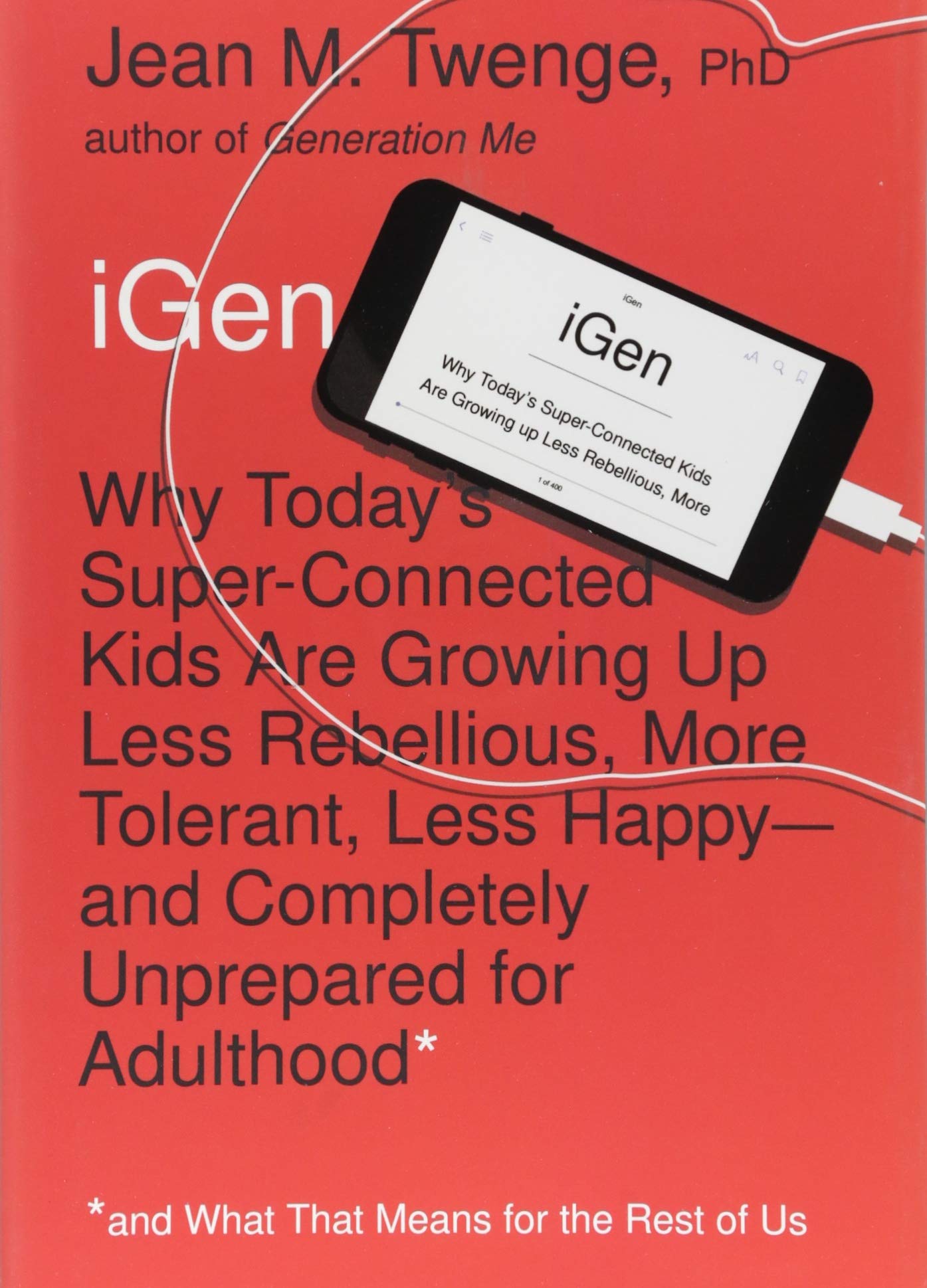 The book iGen: Why Today’s Super-Connected Kids Are Growing Up Less Rebellious, More Tolerant, Less Happy—and Completely Unprepared for Adulthood by Jean Twenge talks about students born after 1995. These students are currently in middle school, high school, and college.
The book iGen: Why Today’s Super-Connected Kids Are Growing Up Less Rebellious, More Tolerant, Less Happy—and Completely Unprepared for Adulthood by Jean Twenge talks about students born after 1995. These students are currently in middle school, high school, and college.
Twenge looked at four “large, nationally representative surveys of 11 million Americans since the 1960s” and identified the following ten trends:
- In no hurry: Students tend to act three years younger on average than in the past. There is simply no hurry to “grow up.”
- Internet: According to Twenge, “the average teen checks her phone more than 80 times a day.”
- In person no more: Texting is considered to be the same as interacting IRL (in real life).
- Insecure: While teens are safer, there is more mental and emotional instability, more unhappiness, and more anxiety.
- Irreligious: In the book Meet Generation Z: Understanding and Reaching the New Post-Christian World by James Emery White (a minister), the author indicates that iGen (also sometimes called “Gen Z”) is the least-churched group ever in the United States.
- Insulated but not intrinsic: Members of Gen Z are very aware of safety issues but not so interested in civic and community involvement.
- Income insecurity: Because they witnessed the 2008 recession and the insecurity of employment, there is a different attitude toward work.
- Indefinite: Their understanding of relationships, sex, and children is heavily influenced by the Internet and pornography. In the research from La Trobe University’s Research Centre in Sex, Health, and Society, 84% of iGen members have received sexually explicit messages by phone or email. Chloe Combi, a researcher from London who has interviewed hundreds of members of Gen Z, states: “They’re almost certainly imitating what they see in pornography.” In the Atlantic Monthly article “Why Are Young People Having So Little Sex?” a professor is cited who makes her iGen undergraduates shadow a married couple for a week to see how married people interact and communicate. Students are amazed at the differences between those relationships and the relationships the students engage in on Tinder and other dating apps. She also tells her students that the first time they have sex with someone, they should not choke their partner during sex. Why would she need to say this? They are imitating what they see in pornography. In addition to these new attitudes toward relationships and sex, many Gen Z individuals do not want to have children.
- Inclusive: Gen Z members are very comfortable with diversity, equality, and free speech.
- Independent: The political views of iGen members are not necessarily party-based.
Twenge, in the book iGen, goes on to say that many iGen members get their opinions from social media, and that they do their fact-checking and research online, often using crowd-sourced reference sites like Reddit.
As we think about educating Gen Z/iGen students, we will need to understand their need for physical and emotional safety, their view that IRL interaction is not necessary for learning, and that emotionally, they are approximately three years behind the previously forecast developmental stages.








